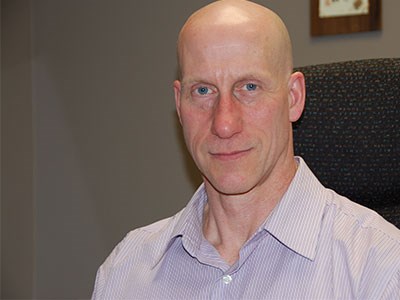Northern Ontario has a certain magnetism — maybe it’s all the minerals. People leave for school or to travel, only to come back years later, seemingly unable to stay away. But they bring back more than just memories; they bring back experience and connections that are invaluable to the Northern economy, at least according to Wilfred Hass.
Hass is the director of economic development and tourism for the Town of Kirkland Lake, and he spent his time away before deciding to settle in the North.
Born and raised in Timmins, Hass first moved south in the mid-1980s to complete a bachelor’s degree in history and philosophy at Guelph University, after which he plunged straight into a master’s degree in international relations at the University of Toronto.
Shortly after graduation, Hass moved even further from his hometown, joining one of the first Canadian-Japanese teaching exchange programs in 1988.
For the next decade, Hass embraced life in Asia, with a brief interlude to study — what else — a postgraduate degree in Asian business and finance at Capilano University in British Columbia in 1991.
Hass’ work overseas took him from teaching English in Japan to acting as an investment officer for the High Commission of the Republic of Singapore to freelancing on aerospace and defence research.
In 1999, Hass was happily living in Singapore with his wife Kuniko, two children, and a fulfilling career. Despite all this, he felt an urge to move back to Canada, to the outdoors he grew up in.
“We were very happy in Singapore, but we had two kids who didn’t know what real grass was, who had the pressure of a busy city all around them,” said Hass.
“I really missed the North tremendously and I guess what was surprising is that not a lot of stuff was radically different, but Northern Ontario had matured a lot since I was gone. There was a vibrant arts and culture scene, and people’s way of thinking was changing.”
Hass and his family wound up settling in Kirkland Lake in early 2000, right next to his hometown of Timmins. The return wasn’t without its challenges.
“My wife saw the first snow storm and said, ‘I’m going to die,’” said Hass. But now, he said, Kirkland Lake is definitely their home.
Hass threw himself into the community both professionally and socially, and is now heavily involved with the local karate club, teaching twice a week; he specializes in traditional styles and ancient weapons.
At the Town of Kirkland Lake, Hass said he came in when the “community was in crisis.”
“When I came through the door originally, it was ‘Here are projects, do these, figure them out,’ then it became broader, now there’s more strategy and I’m pulled in more directions,” said Hass.“Things that I really enjoy are the problems that you have to think out. You see there’s an opportunity there but it’s not clear who can do it.”
The current “problem” requiring Hass’ critical mind is the building of an aquatic centre as part of the town’s sport, event and tourism strategy. He said it’s part of the incremental improvement of the community he’d like to see over the next few years. It will require significant funding – around $9.6 million – and convincing government and other funders why it’s important will rely on Hass’ inventive strategizing and networking.
Hass jokingly refers to his department as “the department of everything else.” Fortunately, his broad education and various professional endeavours helped prepare him for the role.
“I could never have believed what I learned would be that relevant. I studied what I did because I loved it, but it wasn’t what you learned, it’s that they teach you how to think,” said Hass. He hopes young people in his community follow his example, and go abroad to learn and work before settling down.
“I really wish there was more of an emphasis here to go and be as much as you can be, go to university and travel,” said Hass. If you don’t, he said, “you’re not bringing back the contact and knowledge that will continue Northern Ontario to grow and develop.”




